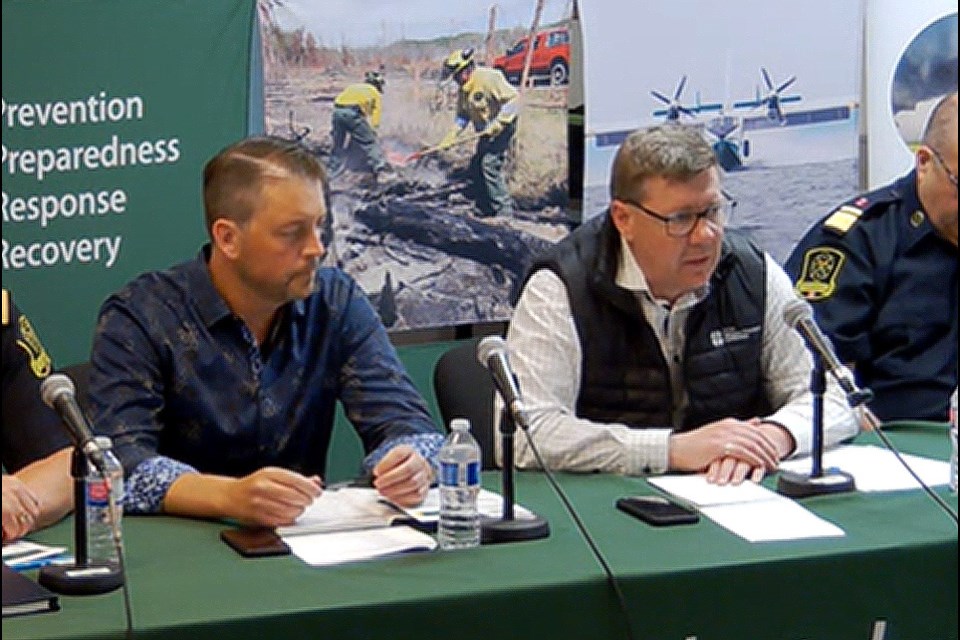NORTHERN SASKATCHEWAN โ As wildfires force thousands from their homes in northern Saskatchewan, Premier Scott Moe faces mounting pressure to formally request military assistance, with NDP Leader Carla Beck and FSIN Chief Bobby Cameron demanding immediate action.
At a press briefing Friday, Moe acknowledged the scale of the crisis but stopped short of confirming a military deployment, emphasizing existing coordination with federal agencies.
โWhat we would potentially look at in the days ahead for federal help, whether it be military personnel on the ground, was if we, for example [needed] a large-scale evacuation,โ said Moe referencing the approximately 7,000-8,000 people from the Tri-Communities (La Ronge, Air Ronge, and Lac La Ronge). "It takes a lot of organization, driving. Through smoke areas, driving through an active fire with ditch fires.โ
The premier said the RCMP has a critical role in evacuations and community security but left the door open to military support if police resources are diverted to the G7 Summit in Alberta.
Moe said evacuations often unfold with little warning, complicating logistics. The province has committed $15 million and Ottawa has committed $30 million to the Red Cross for evacuation support.
The human toll of the fires dominated Moeโs remarks.
โPeople are losing their homesโฆ The fire is unbelievable in how unforgiving it is. Those arenโt just buildings in those pile of ashes, itโs peopleโs homes. A lifetime of memories, history, pictures, mementos, heirlooms, gone. Sometimes home after home after home.โ
Moe pledged full provincial resources.
โWeโre putting every asset we have available.โ
Beck and Cumberland MLA Jordan McPhail met Friday with Desnethe-Missinippi-Churchhill River MP Buckley Belanger, who confirmed the Canadian Armed Forces (CAF) could deploy within 24 hours โ if Moe asks.
โWe need a national approach to this crisis,โ said Beck. โThe federal government is ready. We cannot leave any help on the table.โ
Cameron agreed.
โEvery available resource in Canada must be utilized to combat these wildfires.โ
Provincial and territorial authorities are the first to respond when a major natural disaster occurs in Canada. If an emergency requires more resources than the affected province has available, they may ask the federal government for additional resources, which can include the Canadian Armed Forces (CAF) personnel, equipment, and facilities when required and available. When the CAF responds to such a crisis, it is known as Operation LENTUS.
Military members have been deployed to fight fires directly, in addition to providing assistance with logistics and transportation. Specific examples of supports provided include suppressing hot spots and building fire lines, air resources to move firefighters and equipment, emergency food and shelter for evacuees, delivering aid to isolated communities, search and rescue, and general duties support.
Operation LENTUS follows an established plan of action to support communities in crisis. This plan can be adapted to multiple situations. These might take the form of forest fires, floods, ice storms, or hurricanes.
The size, structure, and capability of CAF support is tailored to the specific needs of the province-led emergency response. This ensures that CAF assistance complements and enhances provincial and local resources with unique capabilities.
Moe reminded evacuees to call Saskatchewan Public Safety Agency (SPSA): 1-855-559-5502
Or Canadian Red Cross: 1-800-863-6582


